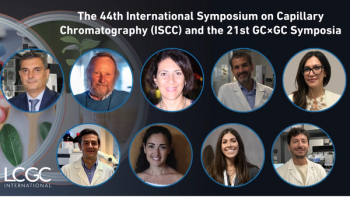
E-Separation Solutions
- E-Separation Solutions-02-26-2010
- Volume 0
- Issue 0
Plenary Lecture
Sunday afternoon?s plenary lecture at Pittcon 2010 will be presented by Alan G. Marshall, Robert O. Lawton Professor of Chemistry and Biochemistry, Florida State University (Tallahassee, Florida), and Director of the Ion Cyclotron Resonance Program at the National High Magnetic Field Laboratory.
Sunday, February 28, 2010
4:30 p.m.
Orange County Convention Center, Chapin Theater, Room W320
Sunday afternoon’s plenary lecture at Pittcon 2010 will be presented by Alan G. Marshall, Robert O. Lawton Professor of Chemistry and Biochemistry, Florida State University (Tallahassee, Florida), and Director of the Ion Cyclotron Resonance Program at the National High Magnetic Field Laboratory. The lecture will be titled “The Role of High-End Instrumentation.”
Marshall’s plenary lecture will discuss how high-end analytical instrumentation has contributed to the advance of cutting-edge applications and has led to the availability of higher-performance lower-end instrumentation. He will provide examples drawn from his experience with synchrotrons, lasers, mass spectrometry, electron and optical microscopy, NMR spectroscopy, Raman spectroscopy, and robotics.
Dr. Marshall began his college education at Northwestern University (Chicago, Illinois), where he received an B.A. degree with Honors in Chemistry in 1965. He received a Ph.D. degree in Physical Chemistry from Stanford University (Palo Alto, California) in 1970. In 1969, he joined the University of British Columbia’s (Vancouver, British Columbia, Canada) Chemistry faculty. In 1980, he left to become a professor of Chemistry and Biochemistry and Director of the Campus Chemical Instrument Center at Ohio State University (Columbus, Ohio). He moved to Florida State University in 1993 to begin his current position. Marshall was a coinventor of Fourier-transform ion cyclotron resonance mass spectrometry (FT-ICRMS), and continues to lead development of that technique. His current research interests include FT-ICRMS instrumentation development, fossil fuels and environmental analysis, and biological macromolecule structural mapping.
Articles in this issue
almost 16 years ago
Pittcon Heritage Awardalmost 16 years ago
Pittcon 2010 PreviewNewsletter
Join the global community of analytical scientists who trust LCGC for insights on the latest techniques, trends, and expert solutions in chromatography.




